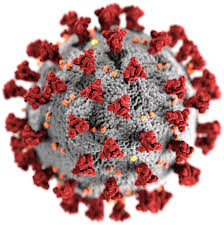
In the time of the coronavirus, the condominium charges have to be paid?
In the time of the coronavirus, the condominium charges have to be paid?
Do we have to keep paying condominium fees even in coronavirus times? What do the many anticovid decrees say about it?
Avv. Valentina Papanice 31/03/2020
Condominium and coronavirus charges, do I have to pay?
Many condominiums have asked us whether, in light of the various emergency provisions recently adopted in our country due to the tragedy of the coronavirus, they are required to pay condominium charges as usual, or not.
In short, one wonders if there is a sort of moratorium on condominium charges, like other payments.
Indeed, the provisions are many and such that some doubt is legitimate.
Consider also the concerns of those who have already lost or are afraid of losing their jobs shortly, due to the downturn and the crisis that will follow. In short, beyond the confusion that so many rules all together can create in the citizen, many fear that the situation will prevent him from being able to meet all the expenses. Fear that, as we know, our government also has.
It is also true, however, that despite a thousand hardships many activities continue and that every sector needs liquidity.
Yes, the condominium charges at the time of the virus crown must be paid
So let’s answer first by saying that there is no rule that has suspended the payment of condominium charges per se.
It is true, however, that some payments have been suspended, with provisions that may vary depending on the area of Italy, but this does not exempt the payment of condominium charges.
The management of the condominium continues in fact even at the time of the coronavirus, and if some aspects fail, due to the suspension of certain activities (e.g. the gardener), others continue to exercise, in some ways even with greater intensity. Think of the cleaning companies, which work more than ever.
Let us think, for another example, of the payment of invoices for utilities which in most of Italy continue to have to be paid; or, again, to pay the custodian’s salary.
We also remember that the payment of the condominium charges also includes the compensation of the administrator, the one who takes care of paying those bills, collecting the condominium fees, managing the condominium in general, even these days.
In short, he who continues to work for the condominium even from the inside of his house, also trying to solve, like many other self-employed workers, the new and complex problems brought about by the crisis and the new measures; he still has to be paid too.
In conclusion, the blocking of certain activities means that the condominium quota currently in force can be considered automatically remodeled due to the aforementioned detention.
Change of condominium shares?
Then, yes, we can say without fear of denial that the condominium charges are due.
To an ordinary extent?
Yes, unless the condominium decides a reduction in the quota; this is not excluded, but materially difficult in these times, where even meetings – at least those we are used to imagining, those between several people in the same room – are not allowed.
The Government clarified this by responding to the FAQs on its website so “Yes, condominium assemblies are prohibited, unless they are held remotely, while still ensuring compliance with the regulations on convocations and resolutions.”
In fact, in a condominium the natural seat of the decisions on expenses is that of the shareholders‘ meeting, except for the exceptions provided for the administrator (art. 1135, second paragraph, of the civil code) and individual condominiums (art. 1134 of the civil code). Therefore, the reduction of the condominium quotas must be taken by the assembly.
If the decision must then be taken with regard to the reduction of the share of only some of the condominiums, it must be taken unanimously: in fact, the allocation criteria referred to in art. 1123 c.c. can be waived only by decision taken by all condominiums.
Coronavirus: is there suspension for the recovery of the credit from condominium charges?
We also remind you that in case of default of the condominium, the law provides for the activation of the credit recovery procedure; in general, the director is required to act within six months of the end of the financial year.
Clearly, since, as we have said, it is difficult for the condominium to meet, it will consequently be difficult for the assembly to approve the condominium report and without that approval it will not be possible to act in court requesting the issuance of the immediately executive injunction . 63 avail. att. and trans. c.c.
The law says, however, that the recovery activity must also be performed, but not only pursuant to art. 63 avail. att. and trans. c.c. and the closing of the financial year does not require shareholders’ meeting approvals: therefore, the advisability of an ordinary legal action or the request for an ordinary injunction (and non-executive order pursuant to art. 63 cit.) should be considered; certainly not easy remedies such as that of the appeal for injunction pursuant to art. 63 cit.
Clearly, the reference is mainly to the hypothesis in which the emergency phase should extend for a long time: otherwise it would be desirable to approve ad hoc rules useful to avoid critical points of the system.
In any case, the deadlines for carrying out judicial documents in civil proceedings are currently suspended, until April 15th. We will see what will happen next.
As we know, everything is in the making; the current standstill situation at some point will be unlocked, we will see when and in what ways.
Clearly, reasons of opportunity and solidarity must advise everyone to adopt the most suitable behaviors for the circumstances and at the same time, respectful of the rules.
Source: https://www.condominioweb.com/doiamo-continuare-a-pagare-gli-oneri-condominiali-anche-aitempi.16819
GECOSEI of Giuseppina Napolitano


